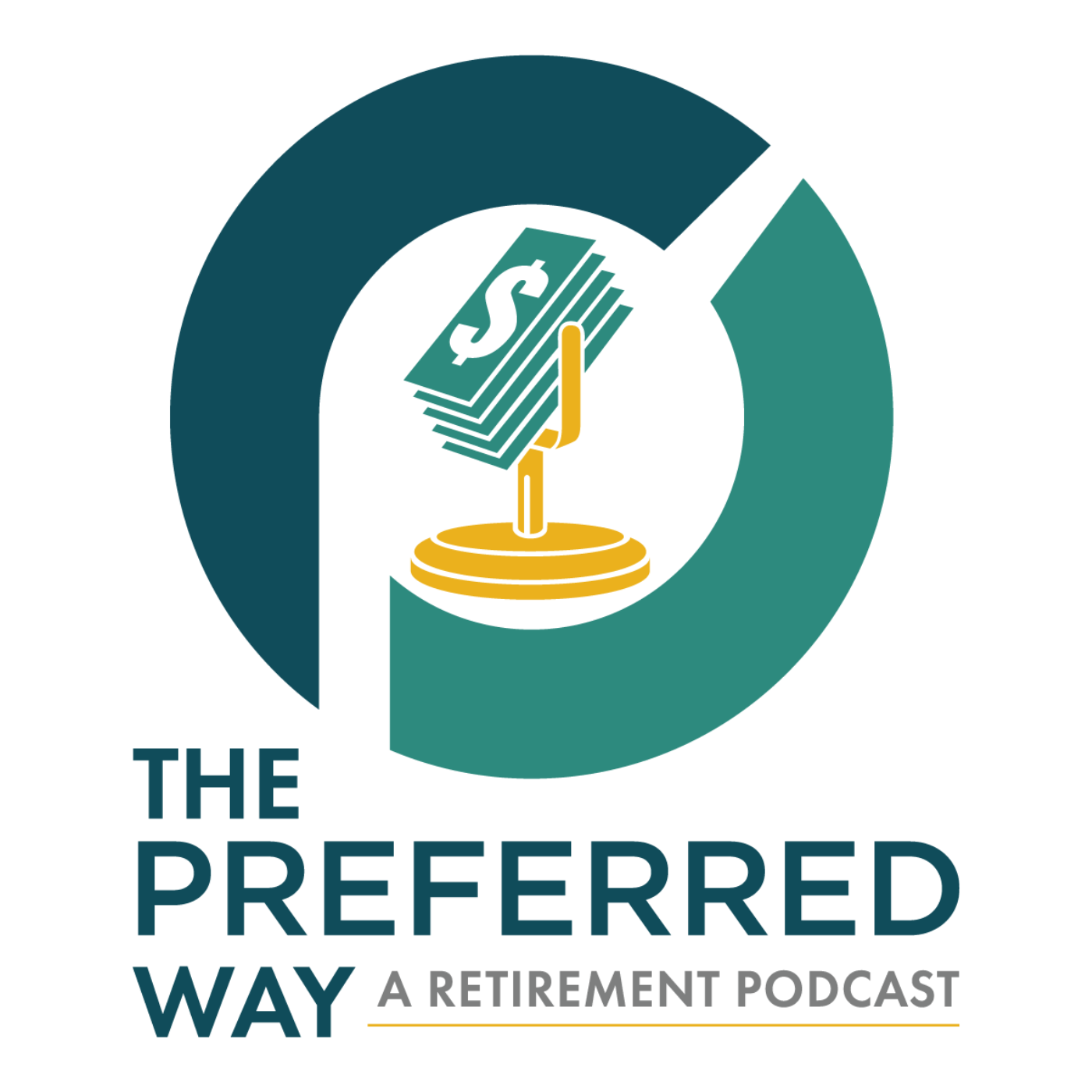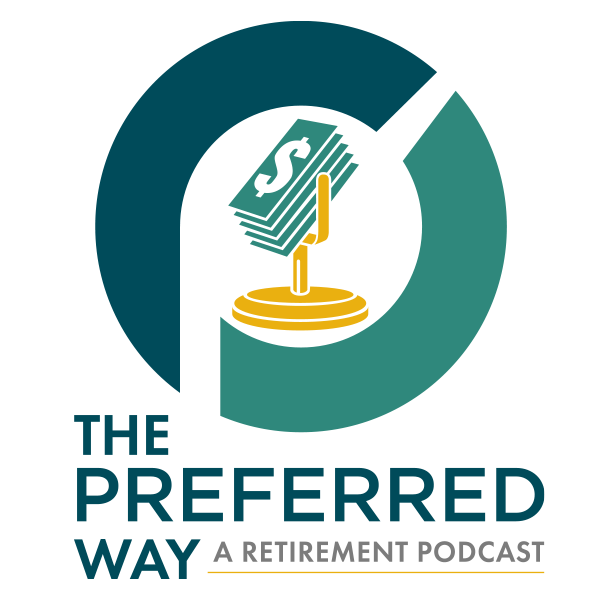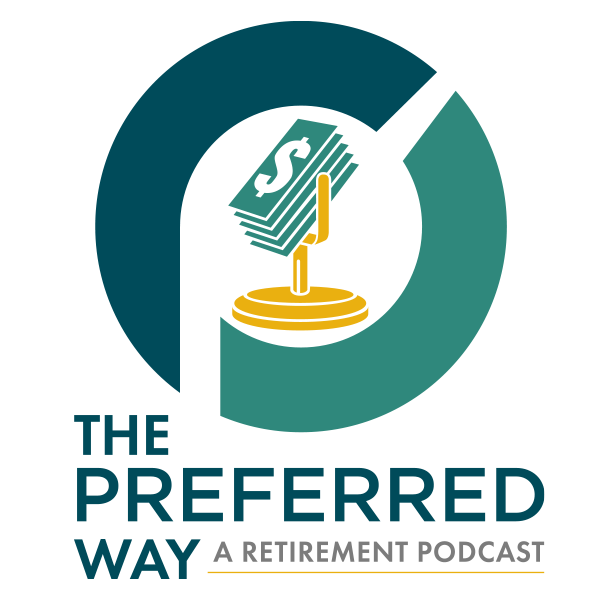[00:00:00] Speaker A: You're listening to the preferred way, a retirement podcast brought to you by preferred trust Company, the preferred custodian for all alternative investments.
[00:00:09] Speaker B: Welcome to another edition of the Preferred Way, our podcast with preferred Trust Company. Today we're going to talk to Kerry Cook, CEO of Preferred Trust, and we're going to discuss long term and short term investments when it comes to digital currency. So thanks for being here to take care.
[00:00:26] Speaker C: Thank you. Appreciate you having me.
[00:00:27] Speaker B: Yeah. So let's talk a little bit about digital currency, obviously, is just another type of investment, alternative investment that clients can opt to have in their self directed IRA. So why don't we talk a little bit about which ones that currently we see more of kind of to get us started.
[00:00:44] Speaker C: Yeah, well, I think it's the popular ones. It's what everybody expects to see. Stable coins. Right. So your bitcoins, your ethereum, that's probably the biggest.
Yeah. That we'll see out there. Most popular, most well known. So whether you're a novice or whether you're way deep into digital currency, those are the ones that we see the most.
[00:01:11] Speaker B: And so typically, I think most of the time with any alternative investment, usually it's a longer term investment. And sometimes when people think of digital currency, they're thinking of day trading, buying and selling quickly. But talk about a little bit of the long term, like, what is the goal with digital currency in a self directed Ira?
[00:01:31] Speaker C: Yeah, well, with any IRA, with any retirement, for the most part, it's long term play. It's retirement. It's intended to be used 1015, 2030 years down the road. So when you invest in digital currency, the mindset shouldn't be, can I sell this tomorrow? It should be, if I buy and hold this for the next year, what is this going to look like now? Granted, there are times where you want to sell, and we understand that, but that's not the intent with a retirement account. So if you're going to invest in digital currency through an IRA, it's usually for a long term horizon.
[00:02:11] Speaker B: We talked about this a little bit before, when we first started offering clients the ability to purchase digital currency through their IRA, the price of bitcoin was pretty low, right around $3,000.
[00:02:23] Speaker C: $3,500.
[00:02:24] Speaker B: Yeah, $3,500. And then it shot up, I think at that time, to about 65,000. But then it started falling again. So we saw that up and down, and a lot of people didn't hold out. They didn't wait, and they sold it at a loss.
[00:02:40] Speaker C: Talk about that a little bit. Yeah. We saw a lot of crazy stuff during that period of time. We watched it go up. First of all, we were one of the first custodians to do this.
[00:02:49] Speaker B: We were.
[00:02:50] Speaker C: So this is a long term play for us, too. So very similar to the retirement side of things. But we saw people get in at 3500, we saw people get out at 40 because it was going up and they thought, oh, my gosh, it's going to fall, it's going to fall. And they got out at 40. It kept growing. We saw, I think the all time high is 71.
And there were days where there were millionaires being made off of their original investments that they made in digital currency. But the whole point with this is be careful when you sell, be careful when you buy. It's with any investment, it's knowing when to get in and when to get out at the most opportune time.
But I will tell you, those who have stayed in have ended up making more over the long run.
[00:03:39] Speaker B: And I think that's, you know, you mentioned something about kind of the trajectory. And I think for clients doing their due diligence and doing some research on digital assets, I mean, obviously this is a changing investment constantly, but doing a little bit of research, making sure that you know exactly what the risk is in digital assets, talk a little bit about that.
[00:04:00] Speaker C: So we obviously don't offer investments here, but what we have offered is a platform in which they can buy and sell with us, but ultimately they're giving us the direction. So you can't pick up the phone and call preferred trust and ask us what do we think about what's going to happen with bitcoin? What do we think's going to happen with stellar, what do we think is going to. We're not going to be able to have that kind of dialogue with you. So that onus is on you to do your own research and your own due diligence. And I've learned over the years there's a lot of resources out there, some more credible than others, some not credible at all. So just be very careful with what research you're doing and due diligence, but really, it is on you. I will say, for the most part, I think you would probably agree with me. Those that invest in digital currency understand digital currency. They understand the risk, they understand the reward.
[00:04:54] Speaker B: A lot of them are investing outside of their IRA before they come in to use their retirement accounts to do it.
[00:05:00] Speaker C: It's interesting, that light bulb, when a light bulb goes off and they're like, wait, I can invest with my IRA, and especially those that are investing with their Roth IRAs and those that invested early on, you know, they're doing rather well. Oh, they're doing very, very well. Very, very well.
[00:05:17] Speaker B: So one of the conversations we have with our clients from time to time is about the short term play. We know that we have competitors out there that allow clients to kind of day trade with it. So talk a little bit about that, because I know that we've had a couple clients mentioned to us, even though they can do that somewhere else, they prefer the security that we provide.
[00:05:40] Speaker C: Yeah, so let me unpack that, because really, there's two things. There's two questions there. So the first one is the way that we hold digital currency versus the way that maybe other custodians hold it, and we're all a little bit different. So when you do your due diligence on the digital currency, you also have to do your due diligence on how the custodian is holding the digital currency.
Ultimately, you're looking for the best protection you can possibly get. And that's kind of crazy for me to make that statement with digital currency, right. It's on a blockchain. You know, you're seeing all these headlines out there, billions of dollars lost in digital currency. You know, you partner with the wrong person, buyer beware. And I would say that same thing for clients that are coming to preferred trust. When you're coming to preferred trust to invest in digital currency.
You know, we were taught on the principles of, of the cryptocurrency standards. And when cryptocurrency started to be offered through an IRA, we went to many conferences to learn the best way, the most secure way to hold it on behalf of clients. And as a custodian holding custody of that, it's really important for us that we don't subject our clients to any more risk than is necessary. And in doing so, we have maintained an off, I'll call it an offline approach, where we do not work with a company that is holding the assets on behalf of the clients, because we're the custodian, we're the responsible party. And so all of that is maintained through our crypto security standards, which, obviously, I'm not going to go into detail, because that's a part of the security, but I need clients to know that when you have digital currency held with us, it is with us. It is not held on somebody else's platform for somebody else to hack. Yeah, it's not in a hot wallet. Your digital currency is not commingled with anybody else's. It is your unique wallet for every single digital currency asset that you hold with us. So that's important because I know many of our competitors and custodians have utilized that option because it's easier, it's more cost effective, and that's great, but it's not more secure. And so we just wanna make sure that clients understand that. But there are also clients that are super knowledgeable about digital currency and probably should be day trading this stuff because they understand the timing of getting in and getting out, or they've been researching or reading, and they know something's coming or staking is happening or something along those lines where you want to have that flexibility. And we do provide that as well. And so one of the ways that they can do that is setting up an LLC that's owned by the IRA. Some refer to it as a checkbook, some refer to it as an IRA LLC.
It takes on many names, but only one meaning it's an LLC that's owned by the IRA. That allows you then to take the funds of the IRA, deposit them into the LLC, and that allows you to set up these hot wallets as you so choose, and you can buy and sell as much as you want inside of that LLC. Now, it does have some compliance requirements as it relates to. We need to know, you know, what the value of those assets are so that we can report accordingly to the IR's. But it is an option. It's definitely an option for clients.
[00:09:19] Speaker B: And then the client gets the option right to be able to they manage the LLC, whereas they kind of take us out of that equation when they're buying and selling, they'll do it through their LLC. And they control that.
[00:09:31] Speaker C: Yes, absolutely. Absolutely. And if you want the flexibility, the flexibility is there for you to have, but if not, we will do the buying and selling for you and make sure that that is done in the most secure fashion possible.
[00:09:45] Speaker B: Yeah. I was talking to a client the other day, and he mentioned that, you know, we do buys within 24 hours. We do sales usually 48 hours or less. Most of the time, it's in within 24 hours, too. So it can be very quick. Again, it's not that day trading back and forth. But he mentioned to me, he said I had to kind of weigh what was more important to me. And he said, the security is much more important. He said, I don't want to take the chance with a hot wallet and losing my entire investment, rather than maybe it's just a couple hours here or there that I wait for you to do that trade for me. So I think the security is something that people today are focused a lot on.
[00:10:23] Speaker C: I think so, too. And I think it's also important to mention that for us to buy and sell, we have to have a conduit, right? So we have gone back and forth. There are a couple stellar companies out there, no pun intended.
Sorry, couldn't resist it. There's a couple companies out there we have chosen to work with Coinbase. And so when we buy and sell, we are transmitting through them, but it's not held there. So it's just the transaction itself that it's occurring, and then the funds are moving back and forth. And that is probably one of the biggest out there. And so we will always maintain that high level of security, even with who we're transmitting through.
[00:11:08] Speaker B: And I think, like you mentioned earlier, it's important to know that your wallets just for you, just for your IRA, they're not commingled with anyone else's. Sometimes when we transfer assets to other custodians, there's one wallet address, and it has all different transactions associated with it for all different investors. And so that can kind of get scary, you know, it can.
[00:11:32] Speaker C: Have you ever wondered. I have to ask you a question.
[00:11:34] Speaker B: Yeah.
[00:11:34] Speaker C: Have you ever wondered, when we send digital currency to a. I'll call it a standard wallet with mining fees and everything else, how do they identify what belongs to who? Have you ever wondered?
[00:11:50] Speaker B: Yeah, I think that, you know, obviously you can get on the blockchain and kind of see the transactions from our end. We know how much we sent based on what the client held in their account and based on the, you know, the mining fees associated and that type of thing. But when you're on the other end of it and you're seeing all these different transactions, how do you relate them to a client? For us, it's very interesting. When somebody transfers their digital currency into us, I know it belongs to them because I look at their wallet address and there's no other digital currency because it's associated. Right. It's unique with them. So I know right away when it comes in, you know, there's no extra verification I have to do. On the other end, they're always looking out. They're always asking us for transaction hashes and wanting to know because they have no way identifying it. And we had a lot of situations where, you know, we've transferred the digital currency within a very short amount of time. But on the other side, they haven't been able to identify it for weeks. And then the client, obviously I would be panicking too if I was the client. Obviously I can see it in their wallet when I look on the blockchain. But for whatever reason, you know, they're not moving these funds quick enough or moving the asset quick enough. So it can be just like you do your due diligence, I think, on the type of asset you're purchasing. It's important to also perform that due diligence on the companies that you're working with as far as being the custodians. And just because something might be cheaper doesn't mean it might be better.
[00:13:20] Speaker C: Watch out for the smoke and mirrors. Watch out for those smoke and mirrors.
[00:13:23] Speaker B: Exactly.
[00:13:24] Speaker C: Cause it's easy to create an app. Anybody can create an app and ledger it to a spreadsheet. Correct. Of a pie in the sky. Let me guess. Yeah, that was probably that person's. I know that they said that they had x number of bitcoin that was coming over, but you know, the reality is, is up to a certain decimal point, it stops.
[00:13:44] Speaker B: Then I have to wonder, it's not with somebody else's.
[00:13:47] Speaker C: I have to wonder what happened. What happens to the extra is that just maintained by that company that receives it? I cannot imagine trying to ledger back to that. I want to be accurate with our clients. I wanna make sure that they know exactly how much they have to the six decimal point, ten if we need to.
Cause when we're selling it, we wanna sell everything. We wanna get every element of that. We're not leaving anything behind in their wallet. It's their wallet, it's no good to us. And so I've always kind of wondered how the other companies do that.
I wanna make sure that clients know that when they buy with us and they sell with us, they are buying. Every dollar has put in and when they sell, every bit of the digital currency is going out. We are not holding anything captive outside of some of the requirements. With digital currency, you do have some leave behinds, I call them, but there's nothing we can do with them once they're left behind. It's just the requirements that they have.
[00:14:47] Speaker B: Yep, absolutely. Well, thanks for the information today. Thanks for joining us.
[00:14:51] Speaker C: Absolutely.
[00:14:51] Speaker B: And thanks for joining us on another episode of the Preferred Way.
[00:14:57] Speaker A: Thanks for joining us for another episode where retirement savers meet alternative investments. Can't wait for the next episode. To learn more, visit our
[email protected].


